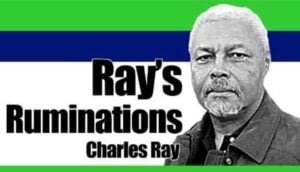
I was informed this week that a classmate of my son suddenly collapsed and died while biking. He was stressed from work the previous day. He was only 37 and left a pregnant wife.
In the past few years, we have seen and heard about younger people dying from heart attacks. Thanks, but no thanks, to convenient, cheap, tasty fast foods, we will be seeing more fatalities in the days ahead.
A heart attack is a condition resulting from the lack of oxygen delivered to the heart, one of the most important organs in the body. It is usually due to a blockage of the arteries (artesiosclerosis) of the heart. Because it can occur even without symptoms like chest pain, it is also called the “silent killer”.
A heart attack is a multi-factorial medical condition that can result from any or several of the following conditions:
1. Heredity or history of heart attacks in the family
2. High blood cholesterol (high HDL, low LDL, high triglycerides)
3. Diabetes mellitus
4.Tobacco smoking
5. Sedentary lifestyle or no work or activity, lack of exercise
6. Hypertension
7. Drug abuse
8. Obesity
9. Stress
10. Alcohol
11. High fat and sugary diet.
Signs and symptoms include the following:
1. Severe, sudden vise like chest pain (daw gina-ipit sang vise) radiating to the left lower jaw or left upper limb or extremity and upper back, also epigastric area (sulok-sulok)
2. Cold clammy sweats (palang yami)
3. Feeling of impending doom
4. High pulse rate (number of pulse beats per minute: normal is 70 to 80)
5. Low blood pressure (normal is 120/80 mm. Hg.)
6. Pain usually during exertion
7. Vomiting may or may not be present
8. Pallor (palang luspad)
Note: A similar condition and symptoms may occur but last less than 15 minutes with rest is called angina pectoris. It is a sign of impending heart attack and should not be dismissed. Consult your doctor right away!. Treatment is the same.
What to do when you have a heart attack:
1. Stop whatever you are doing, even when preaching; sit down and relax. Do not move by yourself. Best to use a stretcher or carry patient by chair.
2. Have someone drive you to the nearest hospital within 15 to 20 minutes. Do not attempt to drive yourself!
3. Call for help.
4. If able to talk tell the doctor what you exactly feel.
5. Put a nitroglycerin patch on your chest nearest the heart or put a nitroglycerin tablet (Isordil sublingual tablet) underneath the tongue and let it dissolve by itself. Do not swallow or chew. If headache occurs, take paracetamol by mouth if still able to swallow.
5. Chew 4 tablets of aspirin or 4 tablets of Clopidogrel.
6. Give oxygen to increase oxygen level of blood to the heart.
At the hospital:
1. They will give you morphine or a powerful analgesic by injection
2. Give you oxygen
3. They will monitor your vital signs (blood pressure, pulse rate, respiratory rate, temperature.)
4. Do an ECG
5. Give you other treatments for the underlying cause of your heart condition like anticoagulants, anti-hypertensives, anti-cholesterol and others.
What can you do to minimize the risk and avoid a heart attack?
1. Change your lifestyle which includes abstaining from smoking and drinking alcoholic drinks, doing regular exercise.
2. Avoid fast foods or junk foods if possible.
3. Lessen stress (which is easier said than done)
4. Monitor your blood pressure and blood sugar levels
5. Schedule periodic medical checkups with your doctor as you advance in age.
What happens when no intervention is done?
A previous mild heart attack increases your risk of having a more massive and fatal heart attack! Blockage of one or more arteries of the heart can produce a massive heart attack and sudden death. – NWI




